How do humanitarian aid workers think and act?
This work focuses on how humanitarian organisations operate, including their members, affiliations, messages, practices and cultures. Aid to refugee, displaced, deported, exiled and interned populations plays a central role in humanitarian action both now and in the past. What types of aid are provided to internees and displaced persons? What kinds of obstacles and dilemmas does it face? What sorts of practical, political and ethical questions are raised by the participation of humanitarian organisations in population displacement and internment policies?
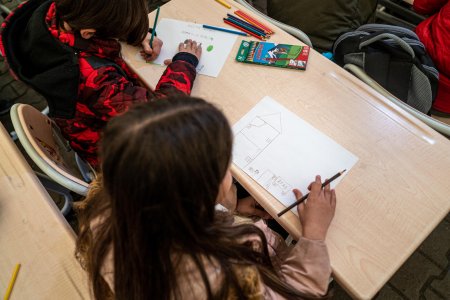 Mariana Abdalla/MSF
Analysis
Mariana Abdalla/MSF
Analysis
“We don’t do mental health”: a review of Médecins Sans Frontières’ first “psy” mission
06/05/2023This article was published on March 27th, 2023 in the journal Alternatives Humanitaires, in an edition focused on mental health.
 Alexis Huguet/MSF
Analysis
Alexis Huguet/MSF
Analysis
Management of the suffering child: a medical and operational challenge
04/27/2022
Based on the example of the hospital in Moïssala, Chad, the two authors reflect on the management of pain in children at Médecins Sans Frontières. This article was first published on March 25th 2022 in the journal Alternatives Humanitaires.
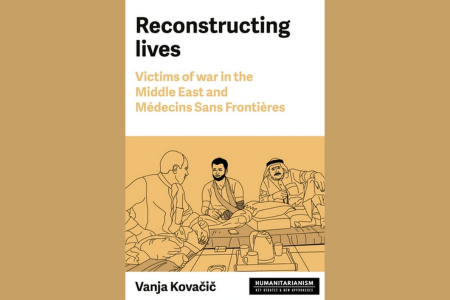 MSF
Book
MSF
Book
Reconstructing Lives: Victims of war in the Middle East and Médecins Sans Frontières
04/01/2022Reconstructing Lives: Victims of war in the Middle East and Médecins Sans Frontières was published in January 2022 by Manchester University Press. The book is the result of extensive fieldwork, in collaboration with the Crash. It is fully available on our website.
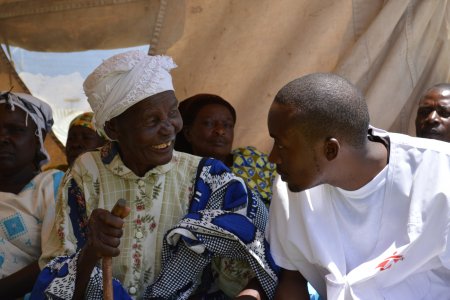 Jean-Christophe Nougaret/MSF
Analysis
Jean-Christophe Nougaret/MSF
Analysis
About the possibility of controlling an HIV epidemic hotspot
11/14/2021This article was first released in the 18th volume of the Humanitarian Alternatives magazine. Designed to reduce the incidence of HIV/AIDS in a Kenyan district, a Médecins Sans Frontières project successfully exceeded the “90-90-90” target set by UNAIDS. A look back on the results that the authors of this article - Pierre Mendiharat, Deputy director of operations at MSF France and Léon Salumu Luzinga, Program manager at MSF France, interviewed by Elba Rahmouni - believe are encouraging but by no means a guarantee that the epidemic will be over by 2030.
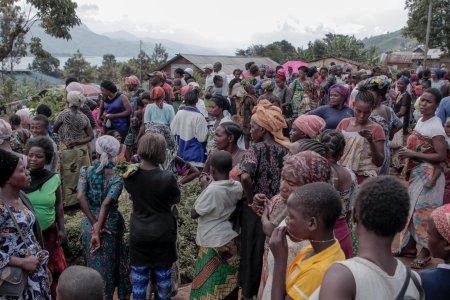 Yves Ndjadi
Book
Yves Ndjadi
Book
Extreme violence. Investigating, Saving, Judging Democratic Republic of Congo, Rwanda, Syria
09/23/2021Over the last few years, Rwanda, the Democratic Republic of Congo (DRC) and Syria have been places where situations of extreme violence took place. As witnesses and investigators of such, the authors of this book shed light on three key-moments that marked these tragic episodes: the investigation, the intervention of emergency relief teams and the implementation of justice procedures leading to judgement.
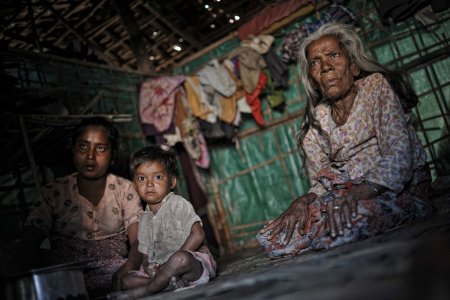 Kaung Htet
Speaking Out Case Studies
Kaung Htet
Speaking Out Case Studies
MSF and the Rohingya 1992 - 2014
11/19/2020The case study "MSF and the Rohingya 1992 - 2014" brings to light two decades of MSF advocacy activities as part of its humanitarian assistance to the Rohingya people in Bangladesh and Myanmar and explores the questions and dilemmas the organisation was confronted with surrounding speaking out.
MSF and kidnappings - the secrets and the dilemmas
09/18/2020On the 31st January, a symposium was held at Sciences Po in support of Fariba Adelkhah and Roland Marchal, researchers at Sciences Po's Center for International Research (CERI) who were arrested in Iran on June 5, 2019. Roland Marchal was released on 20th March 2020 in exchange for an Iranian engineer detained in France. On 6th May Fariba Adelkhah was sentenced to 6 years imprisonment for "propaganda against the political system of the Islamic Republic, and collusion to undermine national security". The researcher was offered conditional release on condition that she terminates her research, but she refused.
The symposium brought together diplomats, journalists, humanitarians and researchers, with the aim of "nourishing reflection about prisoners and hostages, from a political, legal and ethical point of view". Fabrice Weissman presented the experience of Médecins Sans Frontières in the face of kidnappings.
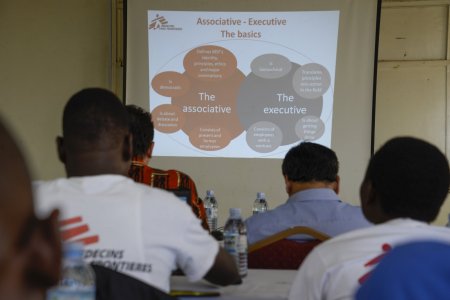 Aurélie Baumel
Interview
Aurélie Baumel
Interview
From bureaucratic inertia to “policy fragility”
09/08/2020Interview by Helai Hosseini. A first version was published on the website of the MSF France association on 31 July 2020.
In the wake of the Black Lives Matter movement in the United States, voices have risen within MSF denouncing the racist and discriminatory nature of our organization. Equal opportunity, they say, is not offered to all our employees. Founded in France in the early 70s by a handful of doctors and journalists, the organization has grown and become international, now employing over 46,000 people around the world, nearly 39,000 of whom are recruited locally. How has MSF’s policy towards its personnel evolved down the years? What is currently being done to fight inequalities? Here is Jean Hervé Bradol’s take on the major phases that have marked MSF’s transformation and the ways in which discussions are engaged today.
The Challenges of Globalization of International Relief and Development
11/27/2019First Published December 1, 1999 - Nonprofit and Voluntary Sector Quarterly (NVSQ) - Volume 28 Issue 1.
This article begins with a look at the role played by Médecins Sans Frontières (MSF) since its inception in 1971, and then looks at the challenges facing MSF today. It focuses on the confusion of humanitarian and political roles and on the goals MSF has laid out for itself to address this confusion. Humanitarian aid has become the favored response of governments to political crises, and governments have increasingly turned to NGOs to carry out their policies. In turn, NGOs have become increasingly dependent on governments for financial support. These changes have politicized aid delivery and made it difficult for NGOs to maintain their independence. In addition, as the number of NGOs increases and their activities become more specialized, there are pressures toward institutionalization and bureaucratization. To respond to these challenges, MSF has identified several goals, including maintaining organizational independence and flexibility and avoiding bureaucratization.
